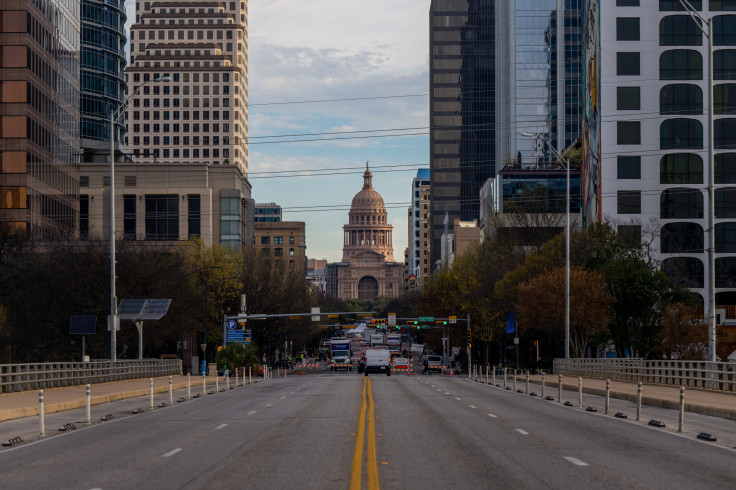
The Texas State Capitol was unusually packed Monday afternoon as dozens of people waited to witness death row inmate Robert Roberson testify at a House committee hearing.
However, Roberson did not make it to Austin, as Attorney General Ken Paxton opposed an in-person appearance, citing safety concerns about having him exit his Houston-area prison.
Haven’t seen a media presence at the Capitol like this since the Paxton trial. Roberson’s lawyer says she has not heard whether he’s heading to Austin. Last she knew he was ready to go, TDCJ was cooperative and congenial, then Paxton stepped in trying to block in-person testimony pic.twitter.com/DsFfttbcNz
— Ryan Chandler (@RyanChandlerTV) October 21, 2024
Rep. Joe Moody, Chair of the Texas House Committee on Criminal Jurisprudence, announced the state had offered the option of Roberson testifying via a video link, but both the committee and his defense attorney declined, citing Roberson's autism and unfamiliarity with video conferencing technology.
"We considered his needs as a person with a disability," said Committee Chair Rep. Joe Moody, adding that the committee is in "ongoing communication" with the Attorney General's office, trying to resolve the matter.
Moody said he was hopeful Roberson would be allowed to testify in person.
Meanwhile, Gov. Greg Abbott broke his silence on the case, condemning the actions of the bipartisan group of lawmakers who issued the subpoena that would halt Roberson's execution and allow him to testify at Monday's hearing.
According to the Texas Tribune, the governor's office said the lawmakers "stepped out of line" by intervening in the process.
Abbott's office filed an amicus brief that argued the power to grant clemency in a capital case, including a 30-day reprieve, lies with the governor alone, per the outlet.
The letter also supported a motion that Attorney General Paxton filed with the court on Saturday asking to reverse the decision allowing Roberson to testify.
Multiple lawmakers from both sides of the aisle behind the subpoena that helped halt Roberson's execution stood their ground on Monday's hearing, saying it was their responsibility to ensure the government didn't execute an "innocent man."
"Government can work; Republicans and Democrats can work together. Death penalty supporters and opponents can work together," said Rep. Jeff Leach. "If we can't speak up and step up and work together to fix [the system] that has failed Robert and Nikki, then what are we even doing?"
Rep. Brian Harrison added, "We can't get this wrong—I want the state of Texas to lead the nation on just about anything, but executing innocent people is not one of them."
Roberson was scheduled to die by lethal injection at the state penitentiary in Huntsville on Oct. 17 at 6 p.m. CT, but the Texas Supreme Court order to halt his execution came through less than 90 minutes before.
Roberson, who has been on death row for more than 20 years, was convicted in 2003 of killing his two-year-old daughter, Nikki Curtis. His conviction was based on Shaken Baby Syndrome (SBS), which has since come under scientific scrutiny.
A mounting body of new evidence also shows that his daughter likely died of double pneumonia, which remained undiagnosed at the time of her death. Authorities were also not aware of Roberson's autism, and part of his trial focused on his "unusual" response to his daughter's demise.
Monday's hearing will focus on how "junk science," particularly outdated and discredited evidence like Shaken Baby Syndrome, may have influenced his conviction. Witnesses testifying included medical professionals, TV icon Dr. Phil, and Roberson's defense attorney.
© 2025 Latin Times. All rights reserved. Do not reproduce without permission.





